Fish tales from Mandovi in Goa

Mail This Article
By the banks of the Mandovi, busy casinos stand like empires of luxury anchored to the serene river that is the lifeline of Goa. The sky is getting dark, which reflects in the water, while blue lights flow out of the casinos. Holding a fairly big hand net that has its handle made of a long tube, a middle-aged woman in a sari is fishing, knee deep in water. She scoops it up occasionally and dips it down in a slightly different spot. After each such step, the woman looks around, apparently trying to locate a better plunge. The net looks at best suited to trap butterflies. But what is she doing in this river?
It’s nightfall, and a young man comes near the elderly character. His name is Jai, and later, it is revealed he is the son of the woman, Rani. He holds her hand to get the woman on to the banks of river. Unlike Rani, the son goes deep into the Mandovi to catch fish. That is, using his country boat. But today he is off duty because his mother is out here with the hand net. They carry the day’s catch and head towards the ferry. It’s a big vessel into which people, after a long day of labour, get in eagerly to reach home after a day’s hard work. Rani's house is on the other side of the Mandovi.
Rani reappears
A day later, in the evening, Rani, in the same place, seemed warmer than the previous day. ''A part of yesterday's fish got sold for Rs 800,'' she reveals. ''I now have to sell the shrimps in two halves.''
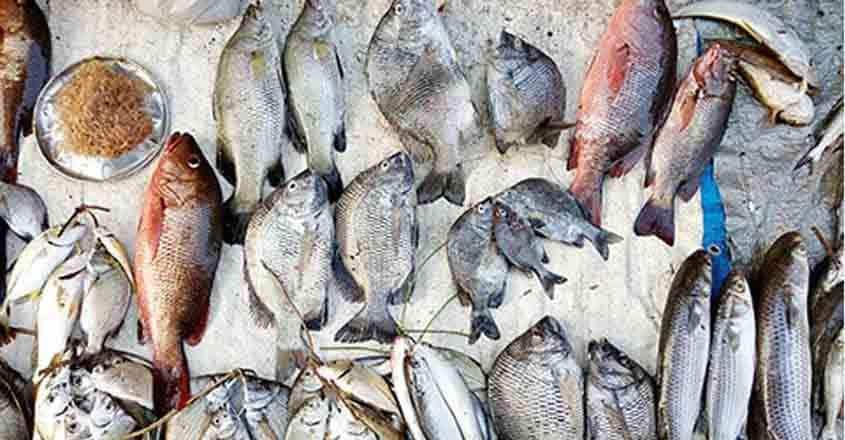
Rani stands out for her industrious nature, which is a contrast to the apparent Goan way of life – easy-going and somewhat lazy. Even shopkeepers don’t open shutters sufficiently early in the day. And once they feel they earned enough for the day, some would even close down abruptly way before night falls. This applies to restaurants and pubs as well.
Goan fish and folks
Here you find shrimps that are hard to notice even if they come teeming together. So transparent are these cute creatures. To trap them, a net is cast across 12 feet. When it finally scoops up the shrimps, they look like the tiny brown leaves at the bottom of a tea cup. In instalments, they add to the weight of the stock. When it is four kg, the stuff is taken to the shore, where it is dumped into a vessel placed in a country boat.
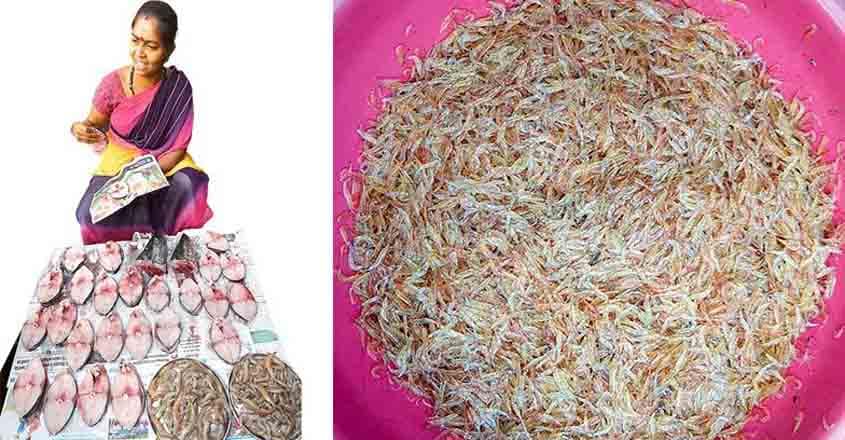
''This is stock that my son Jai takes to the Panjim market,'' says Rani. ''Each share will get me Rs 100 to Rs 200 rupees.''
Rani is a one-person army. She marches along the seashore like a soldier, the bottom of her sari tucked and tucked into the waist. Her gait shows how careful she is not to hurt her feet from the sharp edges of the rocks and broken shards of beer bottles at the bank.
A ferry takes you to Betim village on the other side of the Mandovi. There it’s a team of youngsters fishing. They have two leaders: Tirumala Arumukhanaik and Vishal Shiny. A person by the name of Rafiq Sheikh stands to sell a shoal of tiny fish. The man has two heaps of it before him. The fishermen, amusingly, call this river 'sea.' It’s not odd, going by the depth of the waters around.
Mandovi has a riverside Friendship Association of Malayalis. Its secretary, advocate M Rajan is a native of Kozhikode. Earlier, Malayalam writer C V Balakrishnan had spoken about the taste of the 'chonak' fish (red snapper) which is available on this coast in plenty. He relished it during a break he took between two films at an edition of Goa’s IFFI Film Festival.
Mandovi - the Mahanadi
The 76-km river originates from a cluster of springs up in the Western Ghats along Karnataka’s Belagavi district. It’s a beautiful flow that comes down from the Dootsagar falls which is a wonderful sight while travelling by train. The Mandovi carries Goa’s state fish: shevtto.
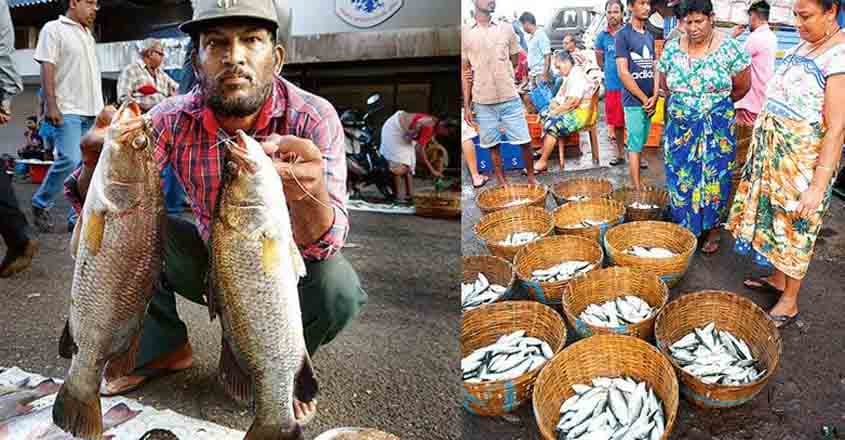
Both Vikram Ganpat and Vinod Kini are casting nets, tying to muster as much fish as possible. A young Virkam suddenly gets to the shore with mud crab, eager to sell them. If sold alive and without its legs broken, he can fetch as high as Rs 1,100.
The Malim fishing harbour, not far, has agents who consign local fish to other states. The 'live crab' also goes to high-end hotel kitchens.
Fish of Mandovi
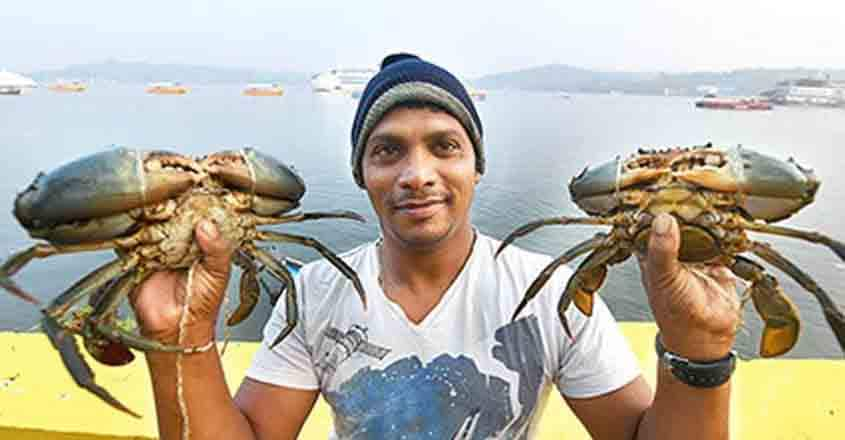
The boat comes close to INOX cinema that is a venue for the IFFI. Get down and cross the road to reach Panjim fish market. The market sports a variety of fish, as colourful as the depths of marine life.
The market wakes up at 6 am, when it largely sports the mackerel fish called 'ayila' in Malayalam. The market has women in saris and frocks sitting in rows on plastic stools to sell their fish.
There’s the 'chonak' too. It’s just what we call kalanchi or narimeen back in Kerala. A 'chonak' fish can weigh upto 2 kg. The flat fish seldom slips into the net of boatmen who trawl deep the Mandovi’s waters late into the night.
Chonak sells for Rs 600 a kg. Then there is the 'shetka' variety of silver fish, which is a great sight, dangling along in a string like a shining necklace. So is another, that’s dark; for the fish is the black pearl spot.
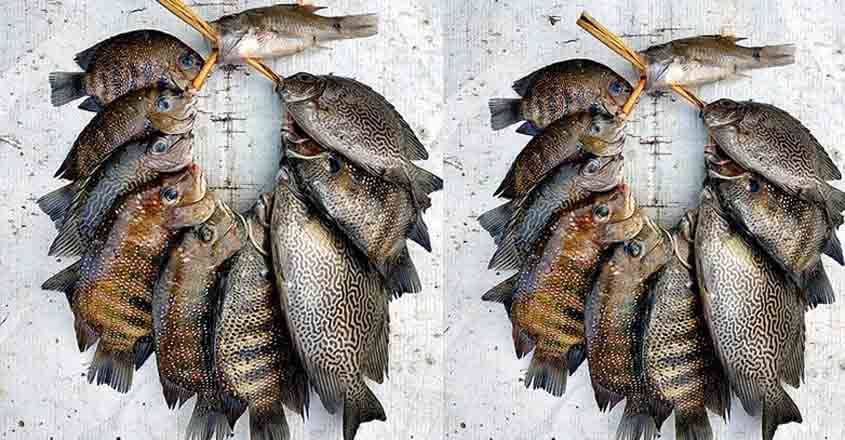
Lazy Goan sights
Much like the Goan air, its people are somewhat languid, yet easy-going. For them, every moment of life is a celebration. At a lazy evening hour, inside the Maria restaurant, owner Sebio Rodrigues has pulled the shutter half down and blocked the entrance with two chairs, lest someone should disturb his peace. It’s only 7 in the evening, but he wants to check customer flow so that he can close his shop well by 8 pm. Else, looks like his mom would scold him. A group of four eats and in comes the bill: One lakh, eleven thousand seven hundred paise. That is how the owner presents the Rs 1,117 bill!
Outside, the hanging bridge-like structure takes you northward to upmarket residential pocket of Porvorim, the legislative capital of Goa. There, in a house, stays Sasikumar Pillai, who is originally from Cherthala’s Thanneermukkam in coastal Alappuzha district of Kerala. His son Dinukumar enters with chonak fish in his bag. Dinu’s wife, Salila, who is a dancer and a music teacher, sashays into the kitchen with a hum, announcing that tonight is going to be ethnic Konkani dinner. Shrimp curry with Goan sole fish and Chonak rava fry.

